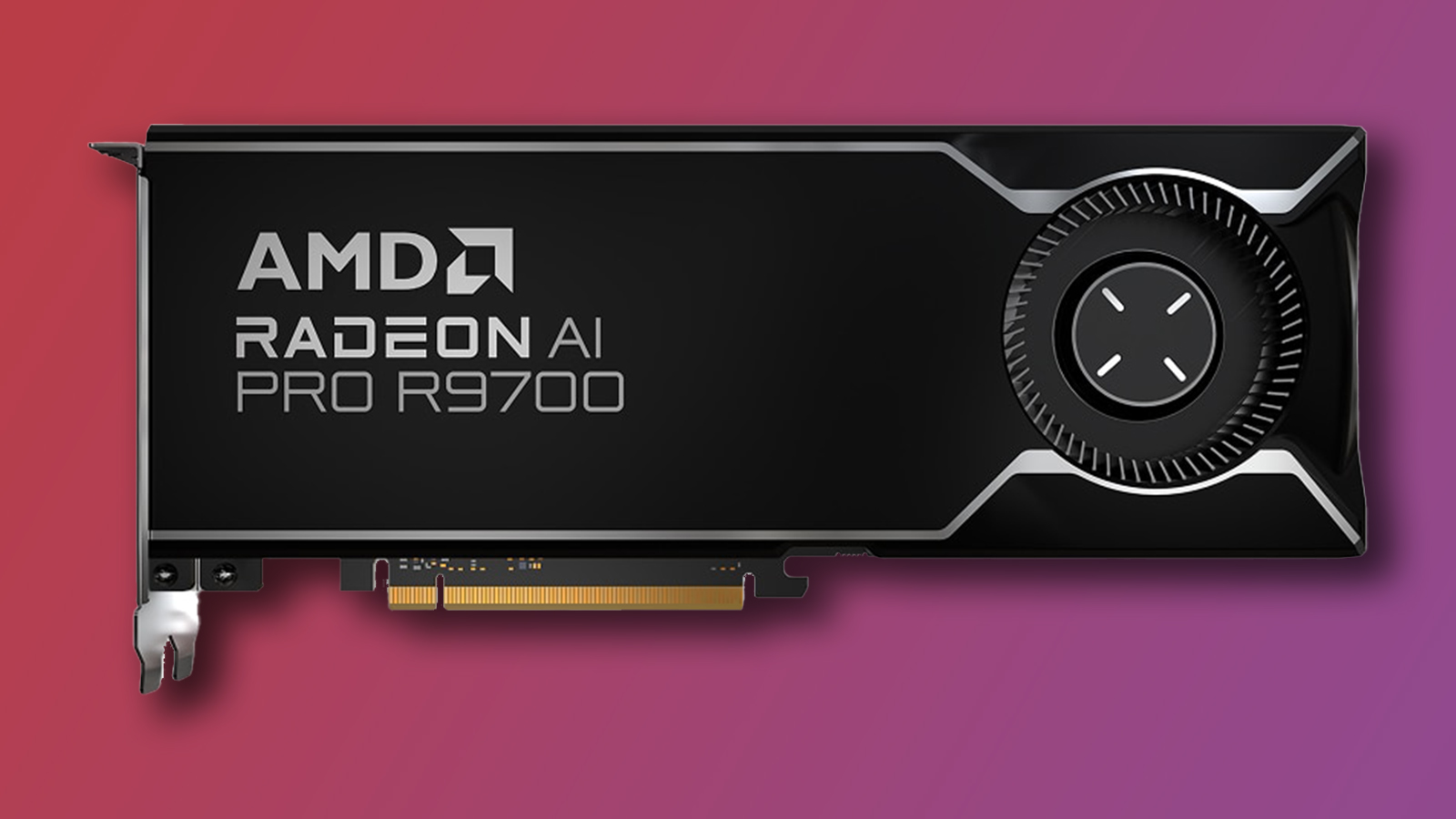AMD to build export-compliant AI chips for the Chinese market, Radeon AI PRO 9700 to arrive by 3Q25
AMD is following Nvidia and introducing an AI chip that complies with Washington's limitations.

AMD is following the lead of Nvidia in creating a new AI chip for the Chinese market that complies with Washington’s export controls. The Radeon AI PRO R9700 is designed specifically for local AI inference and other AI workloads, and is also scalable for multi-GPU setups and is expected to arrive by the third quarter of 2025, according to DigiTimes.
Meanwhile, Nvidia remains on track to release the Nvidia B20. Although it’s based on the latest Blackwell architecture, its compute and memory dies have been downgraded to conform to the limitations the White House has placed on AI chip exports to China.
These GPU manufacturers have taken massive write-offs due to the expanding chip restrictions. Nvidia CEO Jensen Huang said that his company took a $5.5-billion hit as it can no longer sell and deliver its H20 chip to its Chinese customers, while AMD is taking an $800 million haircut because the MI308 is too powerful for the White House’s liking. Nevertheless, they cannot just abandon China, especially as the country is one of the biggest customers for AI chips.
For instance, although these chips aren’t the very best that Nvidia and AMD can offer, there’s still strong interest in them among Chinese institutions. Sales of Nvidia’s H20 still jumped by 50% every quarter, despite being a watered-down version of its HGX H20 AI GPUs. And even though the Nvidia B20 and the Radeon AI PRO R9700 will likely be less powerful than the H20 and MI308, there’s still demand for these chips because many AI models are highly optimized for these systems. Although Chinese AI chip development has been continually moving forward, Nvidia and AMD GPUs still offer better software and compatibility with existing hardware, at least for now.
“AI researchers are still doing AI research in China. They have a lot of mobile technology they would use if they didn’t have Nvidia. If they don’t have enough Nvidia, they will use their own! They’ll use the second best,” Huang said in a recent interview. “Then lastly, of course, the local companies are very, very talented and very determined, and the export controls gave them the spirit, the energy, and the government support to accelerate their development. And so, I think, all in all, the export control was a failure — the facts would suggest it.”
Follow Tom's Hardware on Google News to get our up-to-date news, analysis, and reviews in your feeds. Make sure to click the Follow button.
Get Tom's Hardware's best news and in-depth reviews, straight to your inbox.

Jowi Morales is a tech enthusiast with years of experience working in the industry. He’s been writing with several tech publications since 2021, where he’s been interested in tech hardware and consumer electronics.